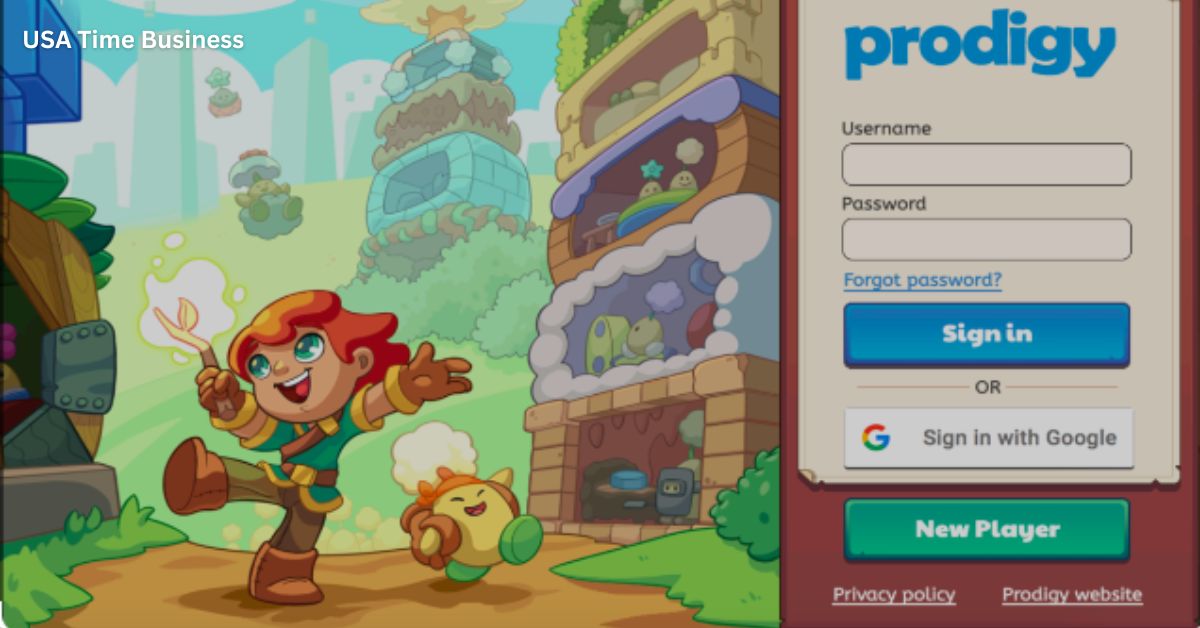Contents
- 1 Unveiling the prodigy: Inside the Mind of a Child Genius
- 2 Defining Child Prodigies
- 3 Examples of Famous Child Geniuses
- 4 Nature vs. Nurture: Are Prodigies Born or Made?
- 5 The Role of Environment and Upbringing in Nurturing a Prodigy
- 6 Challenges Faced by Child Prodigies
- 7 Balancing Academics and Social Development for Prodigies
- 8 Tips for Parents of Potential Prodigies
- 9 Conclusion
- 10 FAQs
Unveiling the prodigy: Inside the Mind of a Child Genius
Step into the extraordinary world of child prodigy, where brilliance knows no age limits.
Witness the awe-inspiring talents and exceptional minds of these young geniuses as we delve deep into what makes them tick.
Join us on a captivating journey to unveil the mysteries inside the mind of a child genius.
Defining Child Prodigies
Child prodigies are rare gems in the sea of talent, exhibiting exceptional abilities at a remarkably young age. These gifted individuals often possess an innate aptitude for music, mathematics, art, or science that surpasses their peers. Their advanced skills and intellect set them apart early on, captivating the attention of those around them.
What sets child prodigies apart is their raw talent, intense passion, and dedication to honing their craft. Despite their tender years, they exhibit focus and determination, usually seen in seasoned professionals. This unwavering commitment drives them to push boundaries and achieve almost unimaginable feats for someone so young.
While no one-size-fits-all definition of what constitutes a child prodigy exists, these extraordinary individuals undoubtedly leave us in awe with their unparalleled talents and boundless potential.
Examples of Famous Child Geniuses
Child prodigies have captured the world’s attention with their extraordinary talents and achievements at a young age. One notable example is Wolfgang Amadeus Mozart, who began composing music at just five years old and became one of the greatest classical composers in history.
Another remarkable child genius is Blaise Pascal, a French mathematician, physicist, and inventor known for his contributions to geometry and probability theory before reaching adulthood. Moving into more contemporary times, we have Malala Yousafzai, an advocate for girls’ education who gained international recognition for her activism against the Taliban in Pakistan.
On the scientific front, we can always remember Stephen Hawking, whose fascination with space and time led him to groundbreaking discoveries in theoretical physics from a very young age. These examples showcase the immense potential that lies within children who possess exceptional abilities beyond their years.
Nature vs. Nurture: Are Prodigies Born or Made?
The age-old debate of nature versus nurture continues to intrigue the minds of many when it comes to child prodigies. Some believe prodigies are born with innate talents, attributing their exceptional abilities to genetics and natural aptitude. On the other hand, proponents of the nurture theory argue that a stimulating environment and early exposure to learning opportunities play a crucial role in shaping a child’s giftedness.
Research suggests that both nature and nurture contribute significantly to the development of prodigious abilities in children. While genetic predispositions may provide a foundation for talent, supportive environments can further foster and enhance these skills. A combination of inherent traits and external influences often propel a child towards genius levels in specific areas.
Whether prodigies are born or made remains an intriguing question with no definitive answer. The interplay between genetics, upbringing, education, and experiences all play vital roles in nurturing the potential of extraordinary young minds.
The Role of Environment and Upbringing in Nurturing a Prodigy
The environment and upbringing play a crucial role in shaping the mind of a prodigy. Surroundings that encourage curiosity, creativity, and exploration can stimulate the potential genius within a child.
Exposure to diverse experiences, supportive mentors, and access to resources like books and educational tools can fuel their intellectual growth. Nurturing a prodigy involves providing opportunities to excel in their areas of interest while fostering social skills and emotional intelligence.
Parents and caregivers must balance challenging their prodigious children academically while ensuring they have time for play, relaxation, and social interactions. Creating a harmonious environment where the young genius feels supported yet challenged is key.
By offering guidance, encouragement, and unwavering support, parents can help unleash the full potential of their budding prodigy.
Challenges Faced by Child Prodigies
Being a child prodigy comes with challenges that can sometimes be overlooked amidst the admiration for their exceptional abilities. One common challenge is the pressure to constantly perform at an extremely high level, leading to feelings of stress and burnout at a young age.
Additionally, child prodigies may struggle with social interactions and finding peers who can relate to their experiences and interests. This sense of isolation can impact their emotional well-being and development.
Moreover, balancing academic pursuits with other aspects of childhood, such as playtime and relaxation, can be challenging for child geniuses. The intense focus on academics may leave little room for other important life skills like socialization or creativity outside their expertise.
Furthermore, expectations from parents, teachers, and society can weigh heavily on child prodigies, leading to feelings of inadequacy or imposter syndrome despite their remarkable talents.
Balancing Academics and Social Development for Prodigies
Navigating the world of academics and social development can be a delicate balancing act for child prodigies. On the one hand, they excel in their academic pursuits, often beyond their years. However, this intense focus on studies can sometimes lead to challenges in social interactions with peers with different interests or abilities.
Parents and educators must recognize the importance of fostering both aspects of a prodigy’s growth. While academic achievements are crucial, nurturing social skills is equally vital for their well-being and future success.
Encouraging prodigies to participate in extracurricular activities or group projects can help them develop teamwork and communication skills. Providing opportunities for them to interact with like-minded peers can also foster a sense of belonging and reduce feelings of isolation.
Finding a balance between excelling academically and engaging socially is key to ensuring child geniuses thrive holistically. By supporting their intellectual pursuits while prioritizing their emotional intelligence and interpersonal relationships, we create a well-rounded environment conducive to their overall development.
Tips for Parents of Potential Prodigies
Raising a potential prodigy comes with its challenges and responsibilities for parents. It’s crucial to provide a stimulating environment that encourages curiosity and exploration. Surround your child with books, puzzles, musical instruments, or other tools that spark their interest.
Encourage a healthy balance between academics and extracurricular activities. While intellectual development is important, remember your child’s social and emotional growth. Allow them to interact with peers and engage in activities that promote social skills.
Be supportive but also allow room for independence. Let your child explore their interests without imposing too much pressure or expectations. Encourage resilience and perseverance in the face of setbacks.
Seek guidance from professionals if needed. Consider consulting teachers, psychologists, or mentors who can provide valuable insights into nurturing the potential prodigy in your midst. Remember, every child is unique – embrace their individuality and help them thrive in their way!
Conclusion
Child prodigies are a fascinating and complex subject that intrigues and inspires many. From their exceptional talents to their challenges, delving into the world of child geniuses opens up many questions about nature, nurture, and potential.
Exploring the lives of famous child prodigies sheds light on the incredible capabilities some individuals possess from a young age. It prompts us to reflect on how talent can bloom early under certain circumstances.
Understanding the interplay between genetics, environment, upbringing, and nurturing prodigious abilities offers valuable insights for parents and educators. It emphasizes the importance of providing support while allowing for social growth and emotional development.
The journey of a child genius is unique and filled with opportunities and obstacles. By acknowledging these complexities, we gain a deeper appreciation for the intricacies of nurturing extraordinary talent at a young age.
FAQs
Q: Can every child become a prodigy?
A: While all children have unique talents and abilities, not every child is a prodigy. Prodigies are exceptionally rare and possess innate gifts that set them apart.
Q: How can parents support potential prodigies?
A: Parents can support potential prodigies by creating a stimulating environment, encouraging their interests, providing growth opportunities, and fostering a healthy balance between academics and social development.
Q: Are there resources available for parents of child geniuses?
A: Yes, numerous resources are available for parents of child geniuses, including specialized schools, programs, mentors, and support groups dedicated to nurturing the talents of these exceptional individuals.
As we delve into the fascinating world of child prodigies, it becomes evident that while some aspects remain shrouded in mystery, the unwavering dedication of parents and mentors plays a crucial role in unlocking the full potential of these remarkable individuals. By understanding the complexities surrounding gifted children and providing them with the necessary tools to academically and socially thrive, we can create an environment where brilliance knows no bounds.











